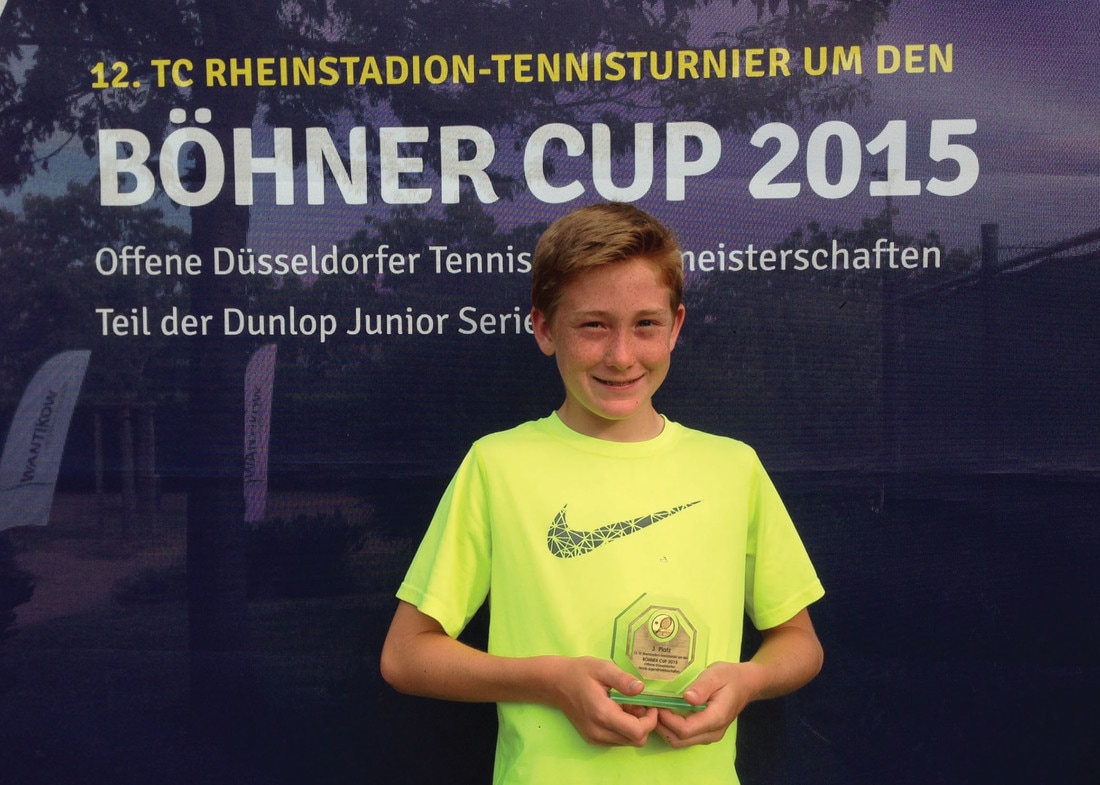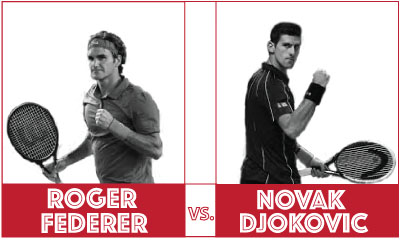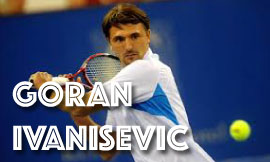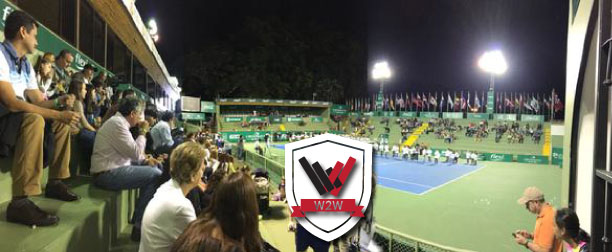|
There was a story circulating that shows video of a parent pushing his 6 year old son off of a 13 ft skate ramp in a skate park in Florida. The video has been met with outraged responses, and it raises the question of how far is too far when it comes to parents coaching their young athletes...
The role of being a parent is one of the hardest, yet most fulfilling things anyone can do in their life. All parents want their kids to succeed and develop confidence in themselves. As their kids grow up parents are faced with situations that they have never faced before and lack experience and knowledge at times, especially when it comes to the delicate process of coaching their kids. Parents of young aspiring athletes play a critical part in the development of their childs self-worth and have a specific role in the process of helping them explore who they are and strive towards their potential. As a mindset development coach, I challenge parents to step in and take the responsibility to guard their children from potentially disruptive or harmful coaching. Nothing will impede the self-worth and progress of athletic kids more than this one thing. Parents can find the power to “fix” this circumstantial problem with understanding empowering attitudes that will help them be a successful support system to their athletic children. Problematic Mindsets for Parents -Perfectionists- look to find value in themselves by seeing their kids strive towards flawless performance. This leads to a false sense of validation for being good parents because being supportive through disappointments is just as important to their kids. -Seekers- focus mainly on pushing their kids to accumulate statuses, various awards, or any tangible levels of accomplishment. This leads to stress for the children more so than enjoyment of what they are doing. -Controllers- will look to control the every move of their kids and schedule them in to hectic and pressure filled schedule. This excessive micromanagement often leads to kids not "owning" the process or the results of their athletics. Then, many kids then never fully learn how to accept responsibility for what they do or don't do- it's always someone else's fault. Empowering Attitudes -Allow Your Child To Own the Process It’s important that parents understand that children need to be able to face their own fears on their terms. Feeling performance anxiety, nerves and pressure is a part of growing up and competing and performing. Developing the internal skills to cope with stressful situations is important for every child. As children are allowed to process these feelings they will find the inner ability to overcome these natural emotions on their own terms and avoid creating longer-term phobias, self-worth and confidence issues. Parents need to withstand the urge to intervene and take over this process for their kids. Instead kids need to hear that its ok to have fear or apprehension and then guide their kids with self-talk that instills confidence that they can learn to overcome the challenges they face. This process will help children be “human” and instill courage and self-trust. -Kids Are Separate People First and foremost, parents have to remember that, though your kids are modeled from you, kids are separate people with their own hearts, minds, and dreams. In my 20 years of experience, I have learned that, far too often, parents view their kids as an extension of themselves and therefore push their kids in directions that are more based on what they would want rather than what their children would want. -No Unrealistic Expectations Earlier in my career, I consulted with a world-class athlete who was struggling with performance anxiety as she competed. Through our discussions, she revealed that her mother used to introduce her to friends by saying, “this is Stacey, my perfect daughter.” She explained that, even at a pro level all these years later, she still feels the weight of her mother’s unrealistic expectations. “The saddest thing to admit is that I have gone through my entire pro career without ever truly enjoying what I do for a living. In the back of my mind I wasn't ever clear on whether I was doing this for me or her.” -Know Your Role As The Positive Support System Allow your kids and their coaches the chance to develop their skill. I had a teammate in college who was a top nationally ranked athlete when he was 12 years old. As he grew older each year his dad would get more involved with giving him his opinion on how to play the game. Over time this confused his son and distracted him from staying focused on following the development path of his very competent coaching staff. Pick the right coaches and let them do their job from the beginning. Stay focused on the role of being a positive support system for your child so your voice doesn’t get stuck in their head in a way that confuses your child or becomes a critical or negative voice.
0 Comments
One of the key attributes to being mentally tough is to have a Powerful Inner Belief System. In my work as a Mental Performance Coach I teach athletes how to build the self-belief that they have more potential than limitations. Believing that your upside potential outweighs your limitations is a necessity in overcoming the many challenges that athletes will face in their competitive career.
On Sept 2nd at the US Open tennis tournament, there was a David vs Goliath match-up that caught my attention. 5’7” Diego Schwartzman’s from Argentina showed how his inner belief system carried him to perhaps the most notable win of his career to date beating 6’ 6” Alex Zverev in four sets. Diego was asked in the post match press-conference how he was able to stand-up to opponents much taller than him. “I do not think about that” was his response. In other words, in his mind it’s a non-issue and he is not comparing himself to players who may be bigger, stronger or faster than he is. So one might ask, if he is not thinking about the size or strengths of his opponents what is he thinking about? His response to this question was, “I have my weapons on court and I focus on using those in the right way”. Another interesting question directed to Diego was, “Do you take joy in beating opponents who are bigger than you?” His response told the story of his mindset regarding this, “Not at all. People have told me it was going to be very difficult to make it in professional tennis because of my height. They were just being honest with me. They were not trying to say I should stop competing but that it would be very difficult. I really don’t think about it that much.” He clearly is the type of person who can accept comments and criticisms from others and internalize it in a way that isn’t threatening to him but rather motivating. In my opinion, the way Diego thinks is a large part of why he has been able to look past his limitations and succeed in building his strengths. This mindset serves as a positive example for how to build your inner-belief system. The world may shout out, “You are not enough!” You can choose to look past disbelieving comments and press forward with a “David like” confidence in what You believe is possible. Schwartzman described how he rely’s on his strengths and one of those is his return of serve. “I have a lot of confidence in my return and I studied many videos of Alex Zverev serving to be prepared. I was thinking about how I was going to take my chances when they come.” This is exactly what Diego did to get the upset against the #6 seeded Zverev. When I heard him start talking about how important his return was my mind was drawn to a common thought about what creates winning tennis. The saying goes, “the two most important shots in the game are the Serve and the Return”. If a player can neutralize a big serve with a solid and deep return it evens the playing field and gives the less powerful serve a chance at getting into a winning position. Like other notable former great returners like 5’10” Jimmy Connors and 5’11” Andre Agassi, Schwartzman has created a strength in his playing arsenal that is a key shot needed to stand up to the big servers. Now that Diego has made it through to the quarter-finals he was asked in his press-conference what he thought was possible from here. His inner-belief blurted out without hesitation, “Everything is possible. I will take my chances when they come and go for it.” Now he faces the #2 seed tennis superstar, Rafa Nadal. “I think I have a chance against Rafa. I need to study past matches when we played. You never know when the next opportunity comes and I NEED TO BE READY. I have not beaten Rafa before but I do have the confidence to beat him.” I witnessed a “breakthrough moment” for a player at the US Open that caught my attention. The player was American qualifier Taylor Townsend from Atlanta Georgia. She is currently ranked # 93 in the world and her opponent was #4 seed Simona Halep from Romania, the reigning Wimbledon champion. Taylor won the match 2-6, 6-3, 7-6 and it IS the first time in her career that she has beaten a top 10 singles player.
As I listened to the post-match press conference from both Taylor and Simona, a few revealing things were said regarding the match. Taylor talked about the few previous times she has played Simona and described her mindset in those matches being “I played to not lose” rather than “I played my game to win”. Taylor is known for her unconventional game style as an aggressive player who comes to net frequently. “I have always come to net since I was a young player. Winning this match was a confirmation that this style of play works for me and I need to continue to do it.” Taylor came to net 106 times in the three set match and won 60% of those points. This statistic is called the “Aggressive Error Margin” and refers to the odds of winning points at net. When set up properly, the chance of winning points at net is 66% on average. Many players just don’t have the skills and inner commitment to execute such an aggressive game style but for Taylor she has dedicated herself both physically and mentally to refine these skills to the point where she is now starting to reap the rewards of her inner commitment. She turned pro at age 16 and has been on tour for over seven years with what most would consider a lack-luster career up to this point. “It’s been a long journey with many ups and downs. Many others have doubted that I could make it but what they say doesn’t matter. I know who I am and what makes me tick.” In Simona’s press conference she talked about how much pressure she felt when Taylor was attacking the net so frequently. “I have never played with someone coming so often to net before. It felt like she was coming forward almost every point! I lost my rhythm and feel as the match progressed Taylor was hitting good volleys on many of my passing shots. She was more inspired than me and was better today.” It’s important for players to understand that a key goal in match-play is committing to your game plan. An important aspect to committing at a deeper level is a mental process. As this mental switch is turned on your ability to effectively focus on the right things in practice and in competition will improve and in time the wins will come. To illustrate this point Taylor talked about a recent result she had at Wimbledon this past July. “I had a match point against the #4 seed Bertens at Wimbledon and didn’t get the win. Sometimes it works, sometimes it doesn’t but you dust yourself off and keep going. I have learned to thrive in these conditions and I think that it showed today.” As we begin 2017 it’s a time when we are encouraged to set new year’s resolutions. Statistics show that these resolutions motivate people to renew fitness goals, recommit to stop bad habits and pursue objectives to improve at work and in our personal and family life. As I was thinking about starting off the new year on the right foot I thought about the question of reaching potential. The message of Worthy to Win tells people everywhere that they are Worthy and deserving of reaching their potential. What exactly is your potential? How is potential measured and are you aware of what your potential is for 2017? When I was a young teenager I recall hearing a motivational talk where the speaker said, “You can accomplish anything you want to in life if you have the right plan and are willing to work that plan as if your life depended on it – you can achieve it.” After hearing this talk I set a goal in my mind to become a Division I Tennis Player on a full scholarship. At the time I set that goal I was living in northern Minnesota in a challenging financial situation with little to no formal coaching. My start to tennis was very late compared to most juniors who would be on track to play at a DI level. If one were to analyze my chances of obtaining this goal of playing at an SEC division I college most would have said my chances were slim to none. At times others would share their opinion and seemed happy to tell me I was dreaming and that it wouldn’t happen. I heard that frequently enough that I wondered why someone else would expend so much energy trying to convince me of the limit to my potential. I learned through this time in my life that I had to hold tight to my dream and work towards it one day at a time. Many people do not truly understand how hard they have to work. I recently heard this quote “Dreams are for one during their sleeping hours, work is for one during the time they are awake. So, the message is wake up and go to work everyday”. I lived this motto for several years and in the end I played for Ole Miss on a full athletic scholarship and had a great college experience. The doubters were wrong and my inner drive and determination carried me to my goal. My experience brings up the point that we all will have doubts and doubters in our life that attempt to pull us down and diminish our belief. This is part of the law of opposition and it is a universal law all people deal with. All great breakthroughs come from facing difficult challenges and working through them. In short, not giving up and staying focused and committed every day. Real potential begins with the mindset that allows you to have this daily focus consistently. Worthy to Win is about realizing the unseen potential that is inside each of us. When we know there is more potential and we want it to come out so badly. In the introduction to my book, Worthy to Win I talk about this in the introduction, “There are many roadblocks that can block experiencing your full potential. In the world of sports, those obstacles include poor technique, strategy, fitness and mental focus. In some cases, it is economics when people lack the resources to get the required training or to travel to compete. Performers need to know where to look for the right answers and then know how to act on those answers. This applies to any skill - sports, business, and life. From 30 years of coaching, I have found that getting your head clear is the first step to your next breakthrough. Having the right mindset is the foundation to build for future good decisions. As a mindset coach I call this important process, “Mindset Development”. Behind all advancement or skill development is the inner belief system that says, “I can do this, I have it in me, I am worthy of getting the win!” As you ponder on your potential in 2017 know that there are two ways of evolving: deliberately and accidentally. You can either decide who you want to become and deliberately work toward that end, or you can just go with the flow and become whatever life makes of you. In that event, you will become whatever the fickle circumstances and forces of life and society will make of you; whatever is currently considered to be popular or in; whatever is easiest. But, whatever you become accidentally it will not be nearly the full measure of your potential. You will become just someone, somewhere in the middle.” As you think about your new years resolutions let me suggest to not settle for just a new years resolution that will lead you to become middle of the road. Instead, reach for your true potential and what that means for you this year. Remember, you are Worthy to Win. The potential is there… Actions to consider:
One of the best things about the work I do is having the privilege to work with athletes who are open, ready and willing to understand the message of Worthy to Win. I enjoy seeing any of all of those I have worked with experience a breakthrough moment. Today I want to spotlight Gabriel Décamps for his recent success at the Yukatan G1 ITF event in Mexico in November.
Gabriel is well coached and has a strong support system through his parents, siblings and extended family. He has worked tirelessly on developing his game yet felt that his mental skills needed to be stronger. Mental skill is an important aspect of development for any athlete in addition to all the physical training. Gabriel noticed, “In this tournament I could see that a lot of players forget to work on their mind because they were so upset on the court.” Specific mental skills range from effective routines and rituals, mental and emotional activation, staying calm and focused etc… but there is a deeper meaning behind mental training. That meaning is to understand what it means to experience the worth that is inside of every athlete and person by doing something that you have never done before. When is the last time you had a breakthrough in performance? In a conversation I had with Gabriel after he won the Yukatan ITF tournament he told me that even though before the tournament he felt he could win this event, as he played each match he did not focus on the importance of winning that next match. He said, “I was focused more on being ready to fight for each match and each point as I played”. In the quarter finals he faced the #1 ITF ranked junior in the world, Miomir Kecmanovic from Serbia. “People were saying this will be a very tough match. I said to myself, you can win this match. I am prepared. Then I just played my best tennis and played freely. It was just another match in my life. I played point by point and competed. I felt I could do it and so did my coach. Mentally I was not thinking about my opponent. Just playing my game. This made me feel free.” After winning the first set Gabriel said, I wasn’t believing what was happening. I was thinking, “How can I be beating this guy?” He came on strong in the second set and won it 6-0. I said to myself in-between sets, “I am Worthy to Win and I just played my game”. I was so sure I could win. This brought me confidence. I was mentally prepared. I was smiling and having fun on the court and it reminded me that I love the sport of tennis. When every point is difficult it is fun because it pushes you. I felt the joy for playing, it was amazing.” From my perspective, Gabriels breakthrough win started long before the match. It started back in August when he decided to work on his mental skills. He called me for the first time and said his confidence had dropped and he wanted to find it again. From the first time I talked to him I could tell he was serious about turning things around in his mind and in his game. He also had confidence in me and in what I could do on the mental side even though we had never met, he was in Brazil and I was in the US but it didn’t matter – he just trusted the process and was willing to do the work. Breakthroughs begin in the quiet moments of reflection as a person comes to understand himself or herself and why they do what they do and get it straight in their head. In the introduction of my book, Worthy to Win, eight-mental habits to your next breakthrough, I talk about what is called the Worthiness Dilemma. I experienced this dilemma as a kid who was desperate to feel good about himself through the only thing he really knew, competitive sports. As I grew older I felt the effects of this dilemma through a confusion about who I was and an ever growing desperation to feel complete through accumulating more athletic wins. Athletes of all ages and levels can fall victim to the Worthiness Dilemma. As Gabriel Décamps found out, learning the truth about your worth means distancing from the “need to win” and just go play your game. One important part of that distance is a mindset not so focused on earning points, status and the next win. The first step to getting to the win is deciding that you are willing to work on your mindset. The result of that work is believing that you are Worthy of the breakthrough! For more information on Worthy to Win Mindset Development email: joey@worthytowin.com or call 801-725-4940. Australian Open 2016 Men's Semi-Final The question, can Roger Federer win another grand slam title is in the minds of tennis enthusiasts around the world. At age 34 his game continues to appear sharp and over the past couple of years has become an even more offensive player. Its clear he is motivated to win another slam as he has continued to play a full schedule. Even with his apparent intentions, does he believe he is worthy to hoist a grand slam trophy over his head one more time? Does he feel Worthy to Win? This is the question that all players have to answer yes to in order to breakthrough mentally. If I had the chance to talk with Roger here are FOUR MENTAL POINTS that I believe will make the difference for him in his match-up against Novak Djokovic. As you read through these four points ask yourself the question; What do you think would make the difference for you the next time you play against someone you have struggled to beat?
1. Be Prepared for an Early Start - Tennis is a momentum game and you need to have the belief that you can come out early and play your “A” game in the first set. Nothing more, nothing less. In the past grand slam matches with Novak you have had slow starts. With a “I have nothing to lose” mentality and a “I have everything to gain” thought process you can come out of the blocks solidly and confidently. 2. Find Distance from the Need to Win – Know that you are capable to win but forget about all your other grand slam victories like you have something to defend. You have nothing to prove, the tennis world knows your accomplishments are second to none. Just prepare for this match. Being single minded in your commitment to believe the work you have put in is enough and your game is ready. Let go of any other aspects of trying to control the outcome. 3. Don’t overthink the importance of the event - With your struggles with Novak in the past few grand slams its important to be prepared to play this one match. So you haven’t won a slam since 2012 – that’s in the past. You are playing solid tennis now and have the opportunity to trust your game and believe that you have the tools to get it done. Don’t over-think the importance of winning another slam – you have done that 17 times. Just play the match. 4. Take a hint from Gilles Simon: Be prepared to Suffer - Resist the urge to over-play and bail out of points– stay within your game, focus on percentage targets and wait for the right opportunities to be offensive. This will require a ton of physical work so accept that fact and be committed to work every point relentlessly. Build the points and the opportunities will come as the match progresses.
In the work I do as a mental coach I often hear coaches and parents say, “I know he/she thinks way too much before certain matches. How can we help him/her to not be so caught up in their head before important tournament matches?” One aspect of thinking too much before match-play is players predicting what will happen in the match. Making a pre-competition assessment is a psychological challenge that all high level performers are faced with at times. You can assess on either side of the outcome. One side includes the thought, “I have the win in the bag – there is no way I’m going to lose this one” The other side can begin prior to the performance by the idea coming into your mind that you are not good enough to win. This idea of accepting defeat prior to the event often occurs in the back of your mind, meaning that you are not consciously thinking about it, It’s more of an uneasy feeling that turns into tightness as the competition nears and eventually panic and self-destruction once you start competing. In my book, Worthy to Win I make the point that seven out of ten performances are pre-determined before the competitors walk onto the playing field. One common reason is that upon assessing their competition, performers can fall into the trap of the “awe factor”. The result of this mindset is that as soon as anything goes off in the performance they will experience a panic response that can lead to a full-on choke response. Its important to understand that all levels can fall victim to the effects of this negative and doubting mindset. This mindset can begin prior to or in the early stages of the event by prematurally assessing your abilities or the abilities of your opponent and getting stuck in your mind regarding this over-analytical judgment. Because of the internet it is all too easy to look up details on your upcoming opponent and begin to compare yourself to their status, ranking or former accomplishments. If you dwell on this too much it will find a way into your head and create a wall of pre-competition doubt. Another distraction can be talking with others who may have struggled with the same challenge and have become nay-sayers in their thinking. They may attempt to impose a “I couldn’t do it, so you cant do it” mentality into your thinking. Look for situations that validate that you can do it. This is the “if he or she can do it, I can do it” mindset. Learning to accept the upcoming match up and choosing to believe that you have what it takes is a mental skill that all performers need in order to make the jump forward in their mind. I call this jump taking a mental leap of faith. It requires the ability to focus on those things you can control and believe in yourself and your skill set and put your focus on your preparation. It also implies that you are not getting caught-up in excessive mental projections. Take it from the many who have dared to believe, never back down, and never say never! A Great Example of Believing: In July 2001, Goran Ivanisevic, although ranked 125 in the world on the ATP men’s pro tour, was given a courtesy wildcard allowing him to play in Wimbledon. He had previously lost three times in the finals of Wimbledon, and was currently having shoulder problems. Despite 125-1 odds, he believed he had what it would take to win. Match by match he moved toward the finals, a first for a Croatian tennis player. He shocked the world by defeating Patrick Rafter in the finals in a thrilling five set match that was the longest in the history of the tournament. Goran Ivanisevic became a Wimbledon champion because of his belief that he had a chance to win and managed the mental process of allowing his ability to come out without over-thinking what his opponents ability was. This week I had the opportunity to coach players at the 52nd Annual Copa Del Café “Coffee Bowl” in San Jose Costa Rica. This ITF Junior event is a level 1 event and has had some big name winners in the past. I walked up to the “Past Champions” board and was surprised to see how many great players had played this event as juniors. Among those notable past champions/finalists are Bjorn Borg, Ivan Lendl, Madison Keys and Noah Rubin. On the first night of the main draw there was a celebration that took place on center court including a fireworks display and televised matches for the players who were featured to play on center court. It seemed that the level of excitement was off the charts and I imagined that the entire Costa Rican tennis community had come to watch these world-class juniors battle for the title. My mind wandered to the thought of how exciting it would be as a player to be featured as one of the center court matches in front of this large crowd. In looking at the impressive list of past finalists and champions it dawned on me that they all had to learn to deal with that pressure and perform in front of a crowd at events like the coffee bowl as juniors. The ITF junior circuit is the testing ground for future ATP and WTA players. Center court is where all champions end up. Think of all the pro tournament titles around the world and how in the end the final rounds are all played on center court with a crowd watching. This can be a potentially stressful event in the mind of someone who has never been in that position or has a built up fear about being on a big stage. All champions need to get over the anxiety of playing in front of a crowd if they are to rise to championship status. There is not one national, collegiate or grand slam champion who hasn’t dealt with that dilemma. As a mental coach I have heard players talk about how the crowd affected them in a negative way. “I felt so much pressure to play well” is something that is a common fear. “I didn’t want to embarrass myself in front of everyone” is another one. One of the core mental needs of competitive athletes is the need to be validated by others. How players appear to their peers, coaches and parents can become a big issue in the mind of junior players. This is an aspect of mental development that players need to learn how to manage. Letting go of being overly “needy” to be accepted by other people is the elephant in the room that needs to be confronted. This is where distancing from the “need to win” is huge. Admitting and accepting that you can’t control everything in a match or your opponent is one way of finding the distance that can help you to just focus on your execution and play your very best. Believing that your best is good enough is also a big part of the mindset that will help you to deal successfully with the stress of being on-stage when the pressure is on. Joey Johnson Worthy to Win |
Joey JohnsonWorld Renowned Mental and Technical Coach Archives
October 2019
Categories |







 RSS Feed
RSS Feed